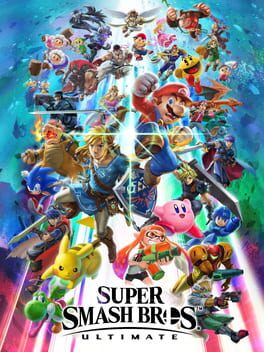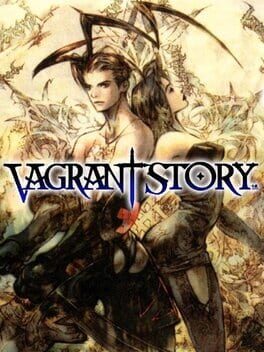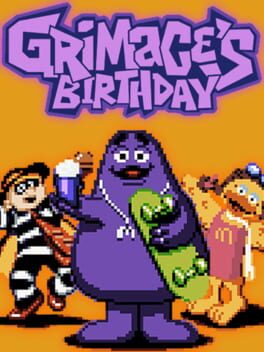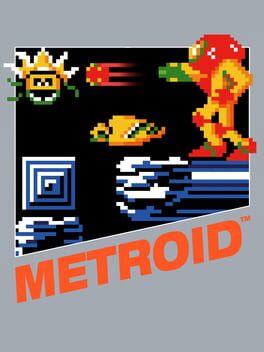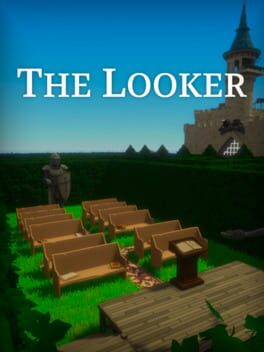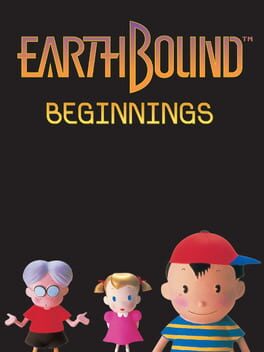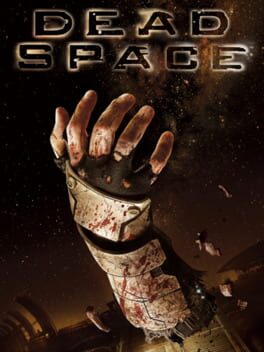Ultimate is interesting to me, because, despite being an ostensibly more casual experience than Melee, the way a lot of the kits are designed are extremely hostile to anyone who doesn't, like, go to tournaments. But even if you stick it out and get to the point where you can hit a moving target with Fox back-air, you've probably gotten good enough to be frustrated with the set initial dash distance, or how miserable it is to interact with platforms, etc. There is the classic post-melee ceiling on movement mechanics we've come to expect, but there is also a weirdly high floor to the way a lot of the characters play. I actually think this is where, at least from a non-hyper-competitive perspective, the worst changes to how Smash functions on a basic level have come from. The removal of lasting hitboxes being a kind of default, the lowering of the frame windows on weak hits generally, and the outright removal of reverse hitboxes, restrict a lot of the cool skill expression that comes from manipulating the specific placement of attacks, but more importantly, these changes harm a beginner trying to play someone like ZSS for the first time. I guess I just find it really interesting that complexity is being removed, but that has come with the strange consequence of the game being harder to learn in a lot of ways. I don't really have my finger on the pulse of smash as a primarily casual experience, so perhaps this isn't really an issue, or maybe the game naturally just filters people into the few dozens characters that don't really have this issue as strongly, but either way, I think ultimate has really strange and conflicting design priorities. (Just as a disclaimer: a lot of these things have probably been true since Brawl, but Ultimate is the first Smash game since Melee I actually put considerable time into)
2016
Dark Souls III is going to age really well in terms of broader cultural perception because, for one, a lot of the early criticisms bemoaning the reuse of proper nouns and whatnot read like advertisements now, given the explicit text of the game and some of the most heavy handed visual metaphors of all time. Premature scrambles to rob things with the Bandai Namco logo of their authorial intention (understandable) is less interesting and less important to me though than the strangely under-discussed topic of the game’s… design. I’ll put Cathedral of the Deep against literally any level design ever. This is the only video game ever made where you get to fight Sister Friede, Twin Princes, Dancer, Nameless King, etc. Granted, a big part of the reason bespoke design elements go unexplored in reviews is their pure density. So many of these levels and bosses would take so long to break down, and It's not like I’m contributing here either, I just listed some examples I liked. That being said, it can’t be overstated that these games, as games, are really good! Uniquely good, I think. Good in a way that should generate more trust-capital in terms of From’s competence as artists and designers more generally.
This all being said, there are still plenty of reasons to hate DS3, many of which I am sympathetic to. I’m not going to list them out (a lot of them have to do with color and lighting), but I’ll at least mention that I think modern From games are pretty clearly less mysterious and “interesting” than when Demon’s Souls was a game you maybe heard about, or the first time you stumbled into The Great Hollow. But man, they hit the transition to “more linear, more big, more fast” with the gas pedal all the way down to the fucking floor. Dark Souls III is genuinely one of the most frenetic and energized games I’ve ever played, and yet still staggeringly tight and well crafted. Bloodborne and Dark Souls III mark the beginning of a stretch of Three-Dimensional Action Role Playing Game Design so ahead of what else is out there that I’m starting to wonder just how long it will be until anything else scratches that itch. I personally didn’t find Lies of P, Nioh, or any of the other games I’ve played in this loosely defined genre nearly as promising in this regard as others have, but time will tell. Or give me recs! I’d be happy to be wrong.
This all being said, there are still plenty of reasons to hate DS3, many of which I am sympathetic to. I’m not going to list them out (a lot of them have to do with color and lighting), but I’ll at least mention that I think modern From games are pretty clearly less mysterious and “interesting” than when Demon’s Souls was a game you maybe heard about, or the first time you stumbled into The Great Hollow. But man, they hit the transition to “more linear, more big, more fast” with the gas pedal all the way down to the fucking floor. Dark Souls III is genuinely one of the most frenetic and energized games I’ve ever played, and yet still staggeringly tight and well crafted. Bloodborne and Dark Souls III mark the beginning of a stretch of Three-Dimensional Action Role Playing Game Design so ahead of what else is out there that I’m starting to wonder just how long it will be until anything else scratches that itch. I personally didn’t find Lies of P, Nioh, or any of the other games I’ve played in this loosely defined genre nearly as promising in this regard as others have, but time will tell. Or give me recs! I’d be happy to be wrong.
2020
Before I had even finished Baldur’s Gate 3, there was an impulse to write a sort of curmudgeonly review about how a lot of this game is written, and indeed, a lot of what characters are saying and doing doesn't really appeal to me. There was a Dark Urge to make sarcastic remarks about how hard it is for a game to recover from an opening cinematic containing a Wilhelm scream proceeding a toootally eeeepppiiiiiic dragon chase (had to get at least one in there), so on and so on. Outside of a few bad scenes though, I don't think that many writing/dialogue sins are actually being committed, more so just personal preferences being chafed against, and that's ok.
Around the time I finished the game, I imagined a review focused more around the encounter design, because I view it as the game’s single biggest success. Encounters are consistently dynamic and flavorful and engaging, so on and so on. I realized quickly that writing that review would be about as boring as reading that last sentence is, and that I view the quality of BG3’s encounter design as a sort of self-evident thing that I don’t care to (or even really know how to) substantiate.
Now, a couple weeks after first finishing BG3, the only review I care to write is about how much more I thought about Dragon Age Origins than I did about BG3 whilst playing through BG3. Every cinematic cutscene with a close up of a sometimes awkward face, every campsite conversation with a companion, every time my character's affliction threatened to turn him into the things he sought to destroy, DAO, DAO, DAO.
I’m not the first person to draw comparisons between these two games, but I do think the extent to which these games feel spiritually identical is maybe a bit unique to me. I don’t think I can rigorously justify the position that Baldur’s Gate 3’s suffers from a lack of individual identity, there are plenty of ways you could argue that the games feel totally distinct, but subjectively, I could not stop saying to myself “I can’t believe I’m playing DAO remastered in 2023.” The point here isn’t really that BG3 is playing it too safe or that it doesn’t have any original ideas, though I do maybe feel that way a little bit. The important takeaway for me is how for every bit Dragon Age Origins has gotten more refined and improved over the years, I have become less cooperative and more jaded a video game player.
I first played Dragon Age Origins when I was about 11, I think. I never beat it then because it was too hard, so I would just replay the first 10 hours or so every several months with my Mom. Back then, the unseen latter 2/3rds of DAO represented a limitless, larger than life world that could go on for 1000 more hours for all I knew. A game world bigger than me, beyond my comprehension, containing things I didn’t even know I wanted.
Last year I beat Dragon Age Origins for the first time, I thought it was ok.
Baldur’s Gate 3 is a lot better in almost every way than Dragon Age Origins, but ultimately, I think it's still Dragon Age Origins. I am of two minds about this fact: For one, I think it's great that 11 year olds now get to play Baldur’s Gate 3 instead of Dragon Age Origins. Had I played BG3 when I was 11, it would probably be my favorite game of all time. On the other hand, I think there is a good chance that when those kids turn 23 they’ll be writing reviews about how much that year's GOTY winner feels like an improved, but ultimately similar experience to Baldur’s Gate 3, without realizing they are actually writing about how similar that game is to Dragon Age Origins. I worry that when I write this review, it isn’t actually about Dragon Age Origins, but about a game that came out 10 years before that. I worry that Western RPGs have and will continue to have a certain tone and tenor, and that we’ll all get increasingly annoyed about it, because eventually most people unfortunately grow out of being innocent, unconditionally giving, boundlessly imaginative media consumers. I hope that I’ll at least enjoy the 2033 GOTY winner. I hope I continue to enjoy Dragon Age Origins.
There is a bridge in the city of Baldur’s Gate in Act 3 with a closed gate to the Upper City at its end. If you try to cross the bridge to get to the gate, you are told not to or you will die. Right before the game ends you can walk up to the gate. If you position your camera just right, you can mouse over an interactable object presumably meant to access the Upper City. For a kid somewhere, behind that gate lies 1000 hours of things to do, people to meet, monsters to kill. For me, it's probably DLC that will be released with the definitive edition in a couple years.
Here’s to 15 more years of Dragon Age Origins, to 25 more years of Baldur’s Gate and to 50 more years of Dungeons and Dragons. Here’s to 100 more years of cheesy companion romances and 200 more years of video game faces not looking quite right. To 500 more years of really good aoe fire spells and 3000 more years of the fucking player character muttering inane bullshit to himself SHUT UP WILL YOU.
Around the time I finished the game, I imagined a review focused more around the encounter design, because I view it as the game’s single biggest success. Encounters are consistently dynamic and flavorful and engaging, so on and so on. I realized quickly that writing that review would be about as boring as reading that last sentence is, and that I view the quality of BG3’s encounter design as a sort of self-evident thing that I don’t care to (or even really know how to) substantiate.
Now, a couple weeks after first finishing BG3, the only review I care to write is about how much more I thought about Dragon Age Origins than I did about BG3 whilst playing through BG3. Every cinematic cutscene with a close up of a sometimes awkward face, every campsite conversation with a companion, every time my character's affliction threatened to turn him into the things he sought to destroy, DAO, DAO, DAO.
I’m not the first person to draw comparisons between these two games, but I do think the extent to which these games feel spiritually identical is maybe a bit unique to me. I don’t think I can rigorously justify the position that Baldur’s Gate 3’s suffers from a lack of individual identity, there are plenty of ways you could argue that the games feel totally distinct, but subjectively, I could not stop saying to myself “I can’t believe I’m playing DAO remastered in 2023.” The point here isn’t really that BG3 is playing it too safe or that it doesn’t have any original ideas, though I do maybe feel that way a little bit. The important takeaway for me is how for every bit Dragon Age Origins has gotten more refined and improved over the years, I have become less cooperative and more jaded a video game player.
I first played Dragon Age Origins when I was about 11, I think. I never beat it then because it was too hard, so I would just replay the first 10 hours or so every several months with my Mom. Back then, the unseen latter 2/3rds of DAO represented a limitless, larger than life world that could go on for 1000 more hours for all I knew. A game world bigger than me, beyond my comprehension, containing things I didn’t even know I wanted.
Last year I beat Dragon Age Origins for the first time, I thought it was ok.
Baldur’s Gate 3 is a lot better in almost every way than Dragon Age Origins, but ultimately, I think it's still Dragon Age Origins. I am of two minds about this fact: For one, I think it's great that 11 year olds now get to play Baldur’s Gate 3 instead of Dragon Age Origins. Had I played BG3 when I was 11, it would probably be my favorite game of all time. On the other hand, I think there is a good chance that when those kids turn 23 they’ll be writing reviews about how much that year's GOTY winner feels like an improved, but ultimately similar experience to Baldur’s Gate 3, without realizing they are actually writing about how similar that game is to Dragon Age Origins. I worry that when I write this review, it isn’t actually about Dragon Age Origins, but about a game that came out 10 years before that. I worry that Western RPGs have and will continue to have a certain tone and tenor, and that we’ll all get increasingly annoyed about it, because eventually most people unfortunately grow out of being innocent, unconditionally giving, boundlessly imaginative media consumers. I hope that I’ll at least enjoy the 2033 GOTY winner. I hope I continue to enjoy Dragon Age Origins.
There is a bridge in the city of Baldur’s Gate in Act 3 with a closed gate to the Upper City at its end. If you try to cross the bridge to get to the gate, you are told not to or you will die. Right before the game ends you can walk up to the gate. If you position your camera just right, you can mouse over an interactable object presumably meant to access the Upper City. For a kid somewhere, behind that gate lies 1000 hours of things to do, people to meet, monsters to kill. For me, it's probably DLC that will be released with the definitive edition in a couple years.
Here’s to 15 more years of Dragon Age Origins, to 25 more years of Baldur’s Gate and to 50 more years of Dungeons and Dragons. Here’s to 100 more years of cheesy companion romances and 200 more years of video game faces not looking quite right. To 500 more years of really good aoe fire spells and 3000 more years of the fucking player character muttering inane bullshit to himself SHUT UP WILL YOU.
2000
Had an experience with this I've been internally referring to as "scratch and sniff gaming" in which I play a game with immaculate vibes just long enough for it to swallow me whole, but slamming the eject button before I get too irritable with actually playing it. I have successfully created an Imagination Polyhedron in my brain containing idealized projections of what the latter 3/4s of Vagrant Story could potentially look like. Playing any more comes with the risk of Vagrant Story becoming "known", the worst thing that can happen to a game with such an unlimited, mysterious potential.
2023
2014
1986
An experience so gamey that it almost loops around to feeling more natural than the more designed terrariums of its successors. It's just so openly hostile and dumb as to feel not actively designed, but instead just... there. As if it preexists us and was discovered by the folks at Nintendo. In the same way getting dropped into a rainforest wouldn't be fair or gently onboard you, Metroid is perfectly content to hit you during door transitions and whatnot; there exists no obligation to room-to-room novelty or variedness, enemies owe you no gamesmanship.
Rather than a cold, isolating, contemplative experience though, this all lent itself to Metroid feeling like being at cross country practice, sprinting up hills for an hour. Repeating stretches of memorized, comically precise platforming and shooting challenges had me panting. I could feel the lactic acid. It reminded me of being in a hot car after a soccer game, near delirious. Side note, maybe I should work out more since everything Metroid pulled out of my brain for synthesis was from when I was like, 10 years old. Anyways, someone who likes Metroid more than me might try to spin this "physical experience" angle into something positive about what the Metroid is trying to instill in the player, but unfortunately, the game lacked a tension for me that makes it not quite work. I didn't get particularly frustrated when I died or anything, just sleepier. Metroid was just tiring, and that tiredness didn't make me think about anything but how nice it would be to lie in my bed.
This all being said, I think Metroid is funny, and in its totality fosters a certain physical exhaustion that not very many other games have for me, which I can respect. I don't think it leverages its apathy for the player or its cruel design into anything interesting or meaningful, but maybe I'm a rube. I don't think the world is particularly interesting and I wasn't really grabbed by it aesthetically, but I think I can see how it could have that appeal for others. I don't think I buy into the stories a lot of people are keen to tell about it nowadays, of something rigid yet crawling, cold yet alive, but I think its cool those stories exist. Metroid 2 and Super Metroid better. See you next mission. Yada yada.
Rather than a cold, isolating, contemplative experience though, this all lent itself to Metroid feeling like being at cross country practice, sprinting up hills for an hour. Repeating stretches of memorized, comically precise platforming and shooting challenges had me panting. I could feel the lactic acid. It reminded me of being in a hot car after a soccer game, near delirious. Side note, maybe I should work out more since everything Metroid pulled out of my brain for synthesis was from when I was like, 10 years old. Anyways, someone who likes Metroid more than me might try to spin this "physical experience" angle into something positive about what the Metroid is trying to instill in the player, but unfortunately, the game lacked a tension for me that makes it not quite work. I didn't get particularly frustrated when I died or anything, just sleepier. Metroid was just tiring, and that tiredness didn't make me think about anything but how nice it would be to lie in my bed.
This all being said, I think Metroid is funny, and in its totality fosters a certain physical exhaustion that not very many other games have for me, which I can respect. I don't think it leverages its apathy for the player or its cruel design into anything interesting or meaningful, but maybe I'm a rube. I don't think the world is particularly interesting and I wasn't really grabbed by it aesthetically, but I think I can see how it could have that appeal for others. I don't think I buy into the stories a lot of people are keen to tell about it nowadays, of something rigid yet crawling, cold yet alive, but I think its cool those stories exist. Metroid 2 and Super Metroid better. See you next mission. Yada yada.
2022
1993
2008
(static) …Isa- ah, DAMMIT. (static)
Issac! Isaac, listen, I shit my pants. I shit my pants real bad… (sighs)... This situation has me totally immobilized. We won’t be able to move the Carbon Reactor to the Electronics Bay until we get this sorted out. I need you to bring me a fresh pair of pants.
Quick Isaac, The doors to the Thermal Energy Facility should b- (static)
SHIT! … Locked.
Isaac, I need you to find three card keys for the doors to the Thermal Energy Facility. They should all be equidistant from you in different directions, and you might have to move a thing on some rails. Please hurry, I don’t know if I can hold out much longer. And don’t forget the pants.
(static)
Issac! Isaac, listen, I shit my pants. I shit my pants real bad… (sighs)... This situation has me totally immobilized. We won’t be able to move the Carbon Reactor to the Electronics Bay until we get this sorted out. I need you to bring me a fresh pair of pants.
Quick Isaac, The doors to the Thermal Energy Facility should b- (static)
SHIT! … Locked.
Isaac, I need you to find three card keys for the doors to the Thermal Energy Facility. They should all be equidistant from you in different directions, and you might have to move a thing on some rails. Please hurry, I don’t know if I can hold out much longer. And don’t forget the pants.
(static)
An implicit encouragement of matter-of-fact objectivity, strewn about and undermined by moral and motive. Human sentiment being pushed to the periphery and pulled into focus by a mechanical rigidity. Life and personhood being smothered under an artificial sense of value. Both Papers Please and Return of the Obra Dinn feed a ritualistic fascination for rules, and use the satisfaction of following them as a thematic avenue into the player’s psyche in a way that only games can. Though I prefer Obra Dinn on the whole, I can’t help but wonder if Papers Please is more effective in this respect.
In Papers Please, Complicity is experienced firsthand, and as such, the intersectionality of its elements are an intuitive focus of discussion. In Obra Dinn, however, I find this kind of analysis a little more infrequent, which is understandable. It’s a bit murkier if the Greed the crew propagate and experience are adequately reflected and amplified through the player lens of an insurance adjuster/investigator that doesn’t actually participate in the events of the “story”. Without getting too autobiographical, I’ve seen the ways insurance adjusters operate – I know what kind of person that is, so from my perspective it has the potential to really work. I often ask myself, though, if Obra Dinn could have pushed that envelope a little further; if the game could have done just a little bit more with its framing device.
Tangentially, I think there is weight to the idea that both Papers Please and Obra Dinn eschew more meaningful aesthetics that would better contribute to their theming in exchange for a sort of minimalist shorthand that more quickly onboards the audience. Papers Please uses a cartoony USSR to microwave a visage of state power and bureaucracy. Obra Dinn, meanwhile, centers its morals in the wise, spiritual, “they were right the whole time” Formosan, and it maybe feels a bit orientalist. I have mixed feelings on both examples, but I do get a vague feeling that these games are a little loose and memetic in their approach their worlds, characters and stories. I’ve heard in interviews that Lucas Pope typically comes up with gameplay concepts (and in Obra’s case, 1 bit style) before deciding on a plot and environment that would be fitting for his games, and although I would absolutely not go so far as to say that these games’ worlds and narratives feel tacked on, (the ship Obra Dinn feels remarkably detailed and researched, for instance) I do wish more things in these games felt more interesting and considered.
In Papers Please, Complicity is experienced firsthand, and as such, the intersectionality of its elements are an intuitive focus of discussion. In Obra Dinn, however, I find this kind of analysis a little more infrequent, which is understandable. It’s a bit murkier if the Greed the crew propagate and experience are adequately reflected and amplified through the player lens of an insurance adjuster/investigator that doesn’t actually participate in the events of the “story”. Without getting too autobiographical, I’ve seen the ways insurance adjusters operate – I know what kind of person that is, so from my perspective it has the potential to really work. I often ask myself, though, if Obra Dinn could have pushed that envelope a little further; if the game could have done just a little bit more with its framing device.
Tangentially, I think there is weight to the idea that both Papers Please and Obra Dinn eschew more meaningful aesthetics that would better contribute to their theming in exchange for a sort of minimalist shorthand that more quickly onboards the audience. Papers Please uses a cartoony USSR to microwave a visage of state power and bureaucracy. Obra Dinn, meanwhile, centers its morals in the wise, spiritual, “they were right the whole time” Formosan, and it maybe feels a bit orientalist. I have mixed feelings on both examples, but I do get a vague feeling that these games are a little loose and memetic in their approach their worlds, characters and stories. I’ve heard in interviews that Lucas Pope typically comes up with gameplay concepts (and in Obra’s case, 1 bit style) before deciding on a plot and environment that would be fitting for his games, and although I would absolutely not go so far as to say that these games’ worlds and narratives feel tacked on, (the ship Obra Dinn feels remarkably detailed and researched, for instance) I do wish more things in these games felt more interesting and considered.
2019
2017
